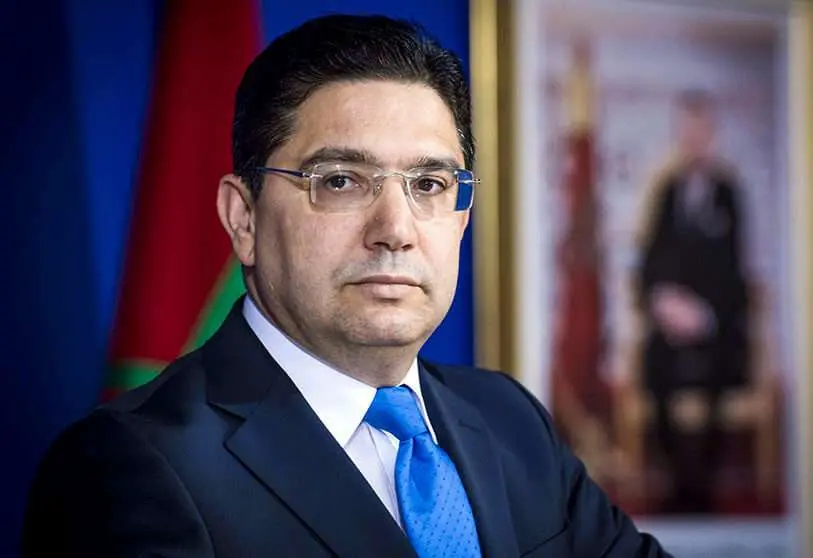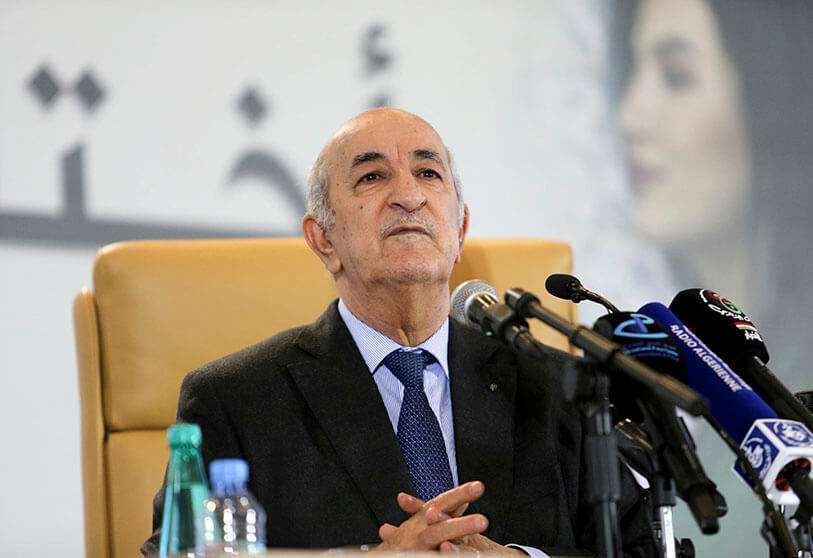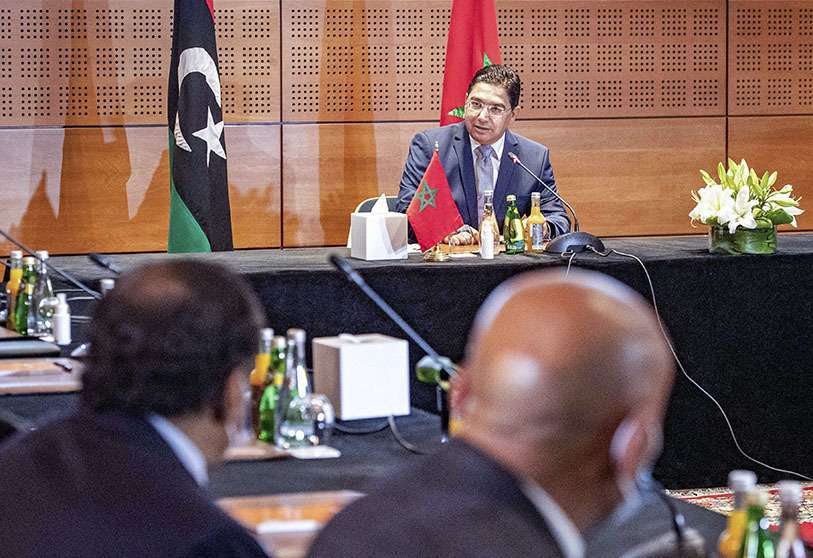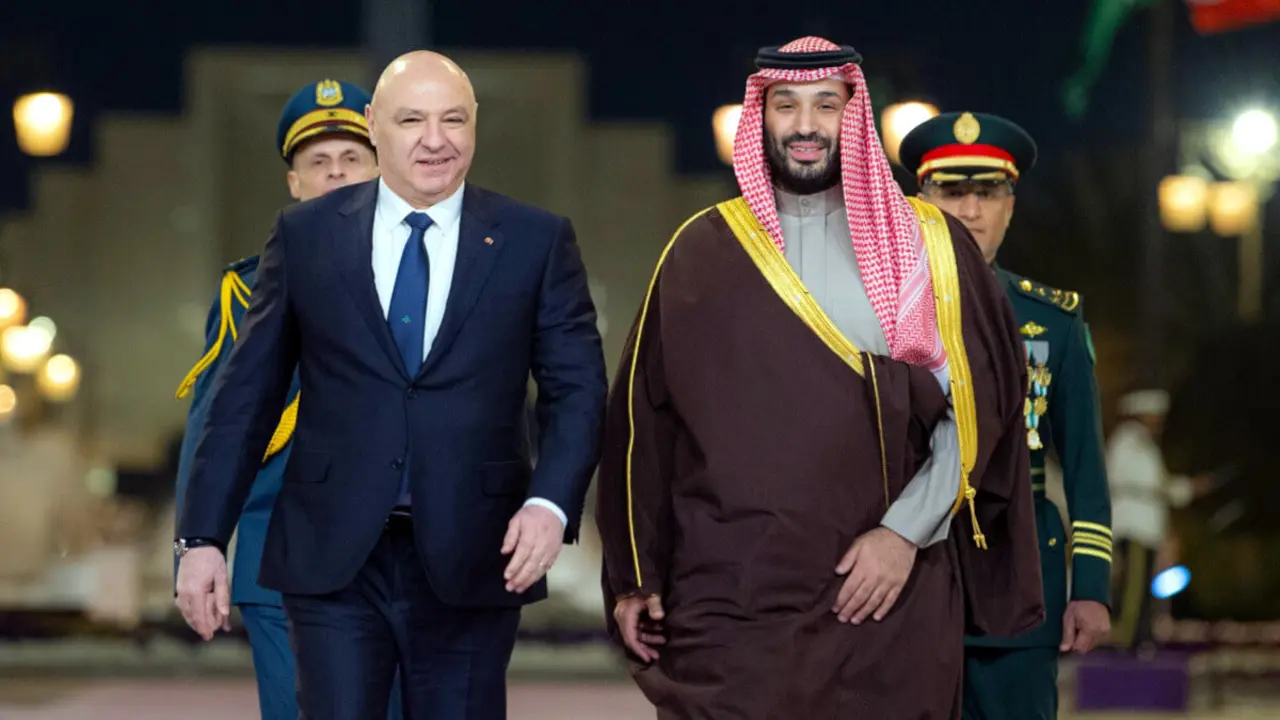Nasser Bourita habla sobre las relaciones entre Argelia y Marruecos: “No son demasiado buenas”

For more than 20 years, there is not a day that passes when both the Algerian and Moroccan press do not talk about the Algerian-Moroccan border issue. A tug-of-war persists between Algiers and Rabat, which is clashing on the diplomatic scene over the Sahara question, a Moroccan enclave occupied by Spain until 1975 and, since becoming unoccupied, the subject of disputes between the Polisario separatists, supported by Algeria, and Morocco.
In recent months, several projects linked to the Moroccan arms sector, together with the establishment of an Algerian military base near the border separating the two countries, increased tension between Rabat and Algiers.
Last Sunday, in an interview with Sky News Arabia, the head of Moroccan diplomacy, Nasser Bourita, commented on relations between the two neighbouring countries. The minister said that Morocco has proposed dialogue with the Algerian authorities and recalled that in 2018, King Mohammed VI sent a message inviting Algeria to 'direct and frank dialogue', to put an end to the problems between the two countries, according to the Observ Algerie website.
"Morocco has always advocated a policy of good relations with all its neighbours," Mr Bourita pointed out, and proof of this is "the good relations Morocco has with its neighbours to the north (Spain) and south (Mauritania)".
The diplomat acknowledges, however, that relations between Morocco and Algeria continue to be complicated. Furthermore, he hopes "to see them improve so that they are in line with the history of the two countries and their respective peoples".
The Algerian portal ObservAlgerie points out that the Algerian head of state, Abdelmadjid Tebboune, recently sent a message to his counterpart in Morocco, speaking about the Saharan question. The Algerian president stated that "the policy of fait accompli is useless. Forty-five years have already passed without a solution being found" recalling that "the referendum on self-determination is the only way out".

Last July 4, the President of Algeria stated during another interview with France24 that "any positive initiative on the part of the Kingdom would be welcome" to ease tensions between these two countries. A day later, on the occasion of the 58th anniversary of Algerian independence, King Mohamed VI sent a message to Abdelmadjid Tebboune, reaffirming "the solidity of the ties of brotherhood which unite the Algerian and Moroccan peoples" according to the MAP news agency.
In addition to the Algerian question, Minister Bourita also spoke during the interview with Sky News Arabia about the Libyan issue.
The foreign policy adopted by the Kingdom, under the leadership of King Mohammed VI, "is based on clarity, ambition and transparency with any country," said Bourita.
"Morocco has interacted with the will of the Libyans to dialogue, and they themselves have chosen to meet in Bouznika", he stressed, adding that the Kingdom supports a peaceful solution to the Libyan crisis, the end of foreign interference and the unity of the country.

The minister highlighted, in this regard, the results of the Libyan Dialogue in Bouznika, in particular the agreements reached on the criteria and mechanisms for filling sovereignty posts, provided for by article 15 of the Libyan Skhirate Political Agreement, signed in December 2015.
The Bouznika talks were to be resumed at the beginning of October, but Abdelkader al-Hawaili, a prominent member of the Council of State, announced at the end of September that the Libyan dialogue table had been postponed indefinitely, apparently because of a conflicting agenda between the parties.
The aim of these new rounds of negotiations is focused on "the mechanisms for appointing" the seven most prominent posts in the state. This dialogue between the Libyan factions, represented by the Parliament and the State Council respectively, is stipulated in the Libyan political agreement signed five years ago.
The Moroccan foreign minister pointed out that efforts are continuing to put an end to the crisis in Libya, and stressed that the solution to the crisis in the North African country should be decided on by the Libyans themselves, under the auspices of the United Nations.
"The Kingdom is ready to offer the Libyans a space to discuss according to their will and will applaud them regardless of the outcome," Bourita said at the beginning of September.








